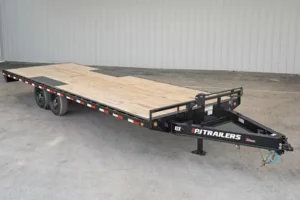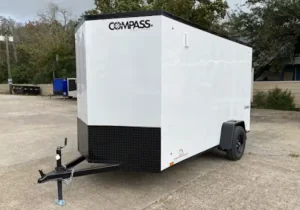In the bustling construction industry of St. Louis, MO, where the skyline is constantly evolving, having the right equipment trailer is as crucial as the materials you use or the team you hire. It’s not just about transporting your gear; it’s about doing so efficiently, safely, and in compliance with local laws. This guide is designed to help construction companies and contractors in St. Louis make informed decisions when selecting an equipment trailer, ensuring their projects run smoothly from start to finish.
Understanding Your Needs
The first step in choosing the right equipment trailer is understanding the specific needs of your construction projects. Factors like the type and weight of the equipment you’re hauling, the distance of transportation, and the terrain of your project sites in St. Louis play significant roles. Whether it’s heavy machinery for a major downtown development or tools for residential renovations, identifying these factors will help narrow down your options.
Trailer Types
Flatbed Trailers: Ideal for versatile loads, flatbed trailers offer easy loading and unloading of various equipment types, from excavators to scaffolding. Their open design means size is rarely an issue, but securing the load properly is key.
Dump Trailers: Dump trailers are invaluable for construction and contracting due to their versatility in handling and transporting various materials, including soil, sand, gravel, and demolition debris. Their hydraulic lift systems enable easy unloading, significantly increasing efficiency on job sites. Additionally, contractors appreciate dump trailers for their durability and ability to navigate rough terrain, making them essential for both urban construction projects and remote site work.
Lowboy Trailers: When hauling particularly heavy or oversized equipment, lowboy trailers are the go-to. Their design allows for transporting loads up to 12 feet in height, making them indispensable for major construction projects with heavy machinery.
Each trailer type has its own set of advantages, tailored to different project needs and equipment sizes. Understanding these can significantly impact your project’s efficiency and cost-effectiveness.
Load Capacity and Legalities
Missouri’s legal requirements for hauling construction equipment are stringent, with specific regulations on load capacity, dimensions, and securing cargo. It’s vital to ensure your equipment trailer meets these legal standards to avoid fines and delays. Additionally, consider the load capacity of the trailer itself to ensure it can handle the weight of your equipment without compromising safety or performance.
Cost-Benefit Analysis
Investing in the right equipment trailer might seem like a significant upfront cost, but it pays dividends in the long run. The right trailer reduces wear and tear on your equipment, decreases fuel costs through efficient transportation, and minimizes downtime by ensuring your machinery arrives on site ready to go. It’s an investment in the smooth operation and long-term success of your construction projects.
Maintenance and Safety
Regular maintenance of your equipment trailer is non-negotiable for ensuring safety and prolonging its lifespan. From checking tire pressure to ensuring the brakes and lights work correctly, a well-maintained trailer is less likely to cause accidents or breakdowns. Always prioritize safety, both for your team and the equipment you’re transporting.
Conclusion
Selecting the right equipment trailer for your construction projects in St. Louis is a decision that impacts every aspect of your operation, from efficiency and safety to compliance and cost-effectiveness. By considering your specific needs, understanding the different types of trailers available, and investing in quality and maintenance, you can ensure your projects proceed without a hitch.
Equip your project with the right tools for success. Consider your options carefully, consult with local experts like Nationwide Trailers, and choose a trailer that will serve your St. Louis construction projects well into the future.


